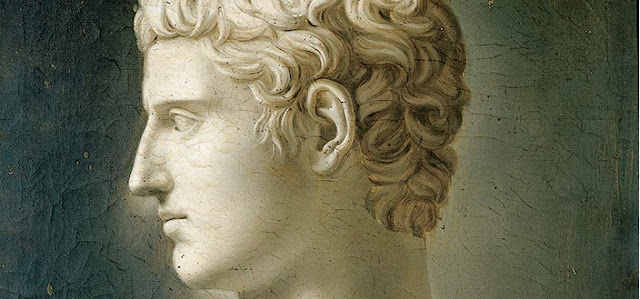The republican constitution made provision from the first for a temporary return to monarchy in times of crisis when the principle of colleagueship was likely to cripple the efficiency of the state. Nor was it, as we might have expected, for the people to decide when this was necessary, but for the consuls themselves. In an emergency either consul could nominate a dictator who then became superior to himself, his colleague and all other magistrates. Which consul was to exercise the power was decided either by the possession of the fasces, or in default of agreement by lot, and, in any case, during the long period of senatorial government the power was only exercised on the authority of the senate.
The emergency for which the dictator was appointed was usually military, but by no means necessarily; a dictator might be appointed, e.g., to hold the elections when both consuls were ill, or for some purely ceremonial function such as holding certain games. Though he was appointed without reference to the people, the dictator's imperium, like that of the consuls and praetors, had to be confirmed by a lex curiata. When a dictator was appointed for a special purpose he was expected to retire as soon as that purpose was fulfilled, but in any case he could not hold office for longer than six months, and apparently his powers also came to an end when the term of office of the consul who had appointed him expired. The persons appointed were nearly always men who had held the consulate and the office, originally confined to patricians, probably became open to the plebs at the same time as the consulate. During his tenure of the office the dictator was supreme; his superiority over the consuls was shown by his right to twenty-four lictors, a greater number than even the kings had had, and the axes appeared in the fasces even within the city. He was not, until comparatively late, subject to the rules of provocatio, and originally he was apparently also free from tribunician intercessio; even after this had been changed (perhaps about the beginning of the third century B.C.) the tribunes appear to have used their rights very rarely, if ever. As bearer of imperium the dictator was entitled to do all the acts that a consul could could do and he could further do one thing that no other magistrate could do, namely, give imperium to his own delegate, for every dictator nominated a magister equitum, who, though primarily, as the name implies, appointed to command the cavalry, was a general assistant and might have various duties delegated to him, e.g. full command at Rome while his superior was in command of the army in the field. The magister equitum had the right to six lictors and ranked equally with a praetor.
The dictatorship as part of the regular constitutional machinery did not last as long as the republic. Already in 217 B.C. there was a departure from the established practice when the dictatorship was conferred by election on Q. Fabius Maximus, and the original character of the office was further weakened when, in the same year, the comitia conferred equal power on the magister equitum. After 202 B.C. no dictator in the old sense was ever appointed. The title, it is true, was taken both by Sulla and by Caesar as the basis of their arbitrary powers, but in neither case was the nomination regular, and, in fact, both were successful party leaders able to impose their wills on the community in the revolutionary period because of their command of military force. The old dictatorship had disappeared because it was incompatible with complete senatorial supremacy.
----------
- The republican constitution
+ The republican constitution: Elements
+ The struggle between the orders
+ The assemblies of the people
+ Characteristics and procedure of roman assemblies
+ The Senate
+ The consulate
+ The praetorship
+ The aedileship
+ The quaestorship
+ The censorship
+ The tribunate
+ The minor magistrates
----------
Source:
Historical introduction to the study of Roman law, H. F. Jolowicz, pages 53 - 55.
